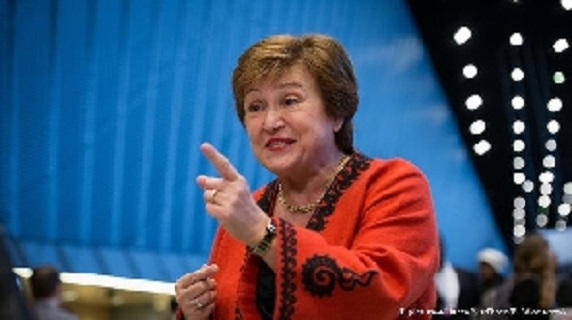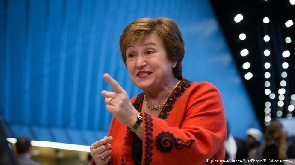Stability of Ghana’s economic path will be painful – IMF boss says
The International Monetary Fund (IMF) has hinted that Ghana’s journey toward economic stability would be difficult, but it is still hopeful that the nation can overcome its current difficulties.
Therefore, while the nation carries out its US$3 billion loan-support program, the Fund has urged Ghanaians to maintain their sacrifice and be reasonable in their expectations of the government.
The government of Ghana imposed a number of taxes and levies on the country’s economy following the COVID-19 epidemic, including the COVID-19 Health Recovery charge, the Electronic Transactions charge (E-levy), and the Sanitation and Pollution levy.
As part of its efforts to raise money, the government recently proposed an emissions charge and a 15 percent Value Added Tax (VAT) on domestic power consumption.
However, the news caused a stir among Ghanaians, and as a result, the government suspended it while it had talks with the IMF on the next steps.
Speaking on the government’s discussions with the Fund over the taxes on emissions and power, Ms. Kristalina Georgieva, Managing Director of the IMF, begged Ghanaians to accept the government’s “painful reforms.”
As part of her first visit to Ghana, she made this statement to the media and expressed her hope that the nation’s current reforms will provide assistance to its people.
However, the news caused a stir among Ghanaians, and as a result, the government suspended it while it had talks with the IMF on the next steps.
Speaking on the government’s discussions with the Fund over the taxes on emissions and power, Ms. Kristalina Georgieva, Managing Director of the IMF, begged Ghanaians to accept the government’s “painful reforms.”
As part of her first visit to Ghana, she made this statement to the media and expressed her hope that the nation’s current reforms will provide assistance to its people.
CHECK ALSO: Are hair cuts and knowledge-seeking related in any way – Honorable Samuel Zigah questions
“We recognize that the people of Ghana have been affected, and any additional expense is a hardship for low-income households. We need to examine the government’s financial situation, and there are a number of strategies we can use to make this happen, Ms. Georgieva said.
Although she acknowledged that Ghana’s present economic situation “is not as dramatic,” she insisted that the government continue to concentrate on carrying out the loan-support program.
The Managing Director of the IMF stated that Ghana would be able to have a robust economy and high standard of life if it had solid macroeconomic foundations, institutions, governance, and no corruption.
She requested that the government prioritize cutting costs, raising income, and increasing funding for education.
According to Ms. Georgieva, “we know that the government cannot spend more than it brings in, and it’s much better to spend money on infrastructure and education than on debt service.”
Under the terms of the Post-COVID-19 Programme for Economic Growth (PC-PEG), Ghana is working with the IMF to establish a three-year US$3 billion Extended Credit Facility (ECF) program.
The program’s objectives are to strengthen resilience, establish a stronger and more inclusive growth base, and restore macroeconomic stability and debt sustainability.
The nation has already received US$1.2 billion from the IMF in two installments, and in April 2024, a second evaluation of the program’s execution is anticipated.






